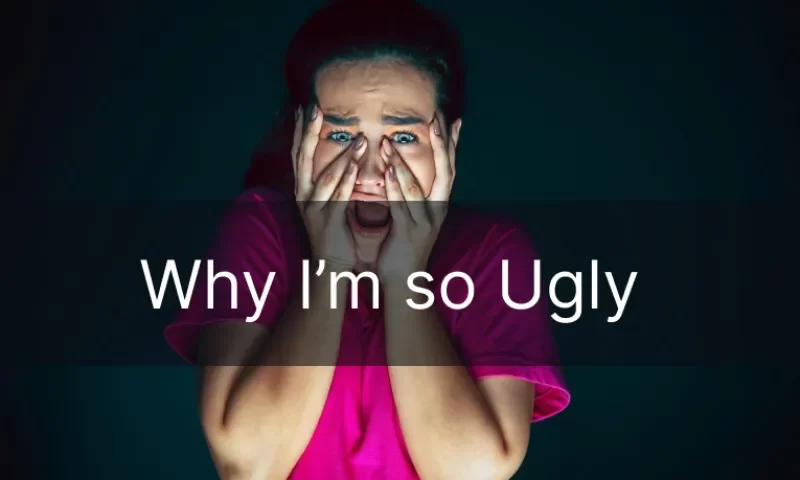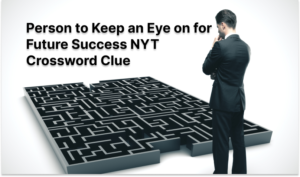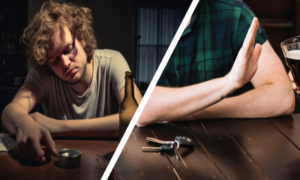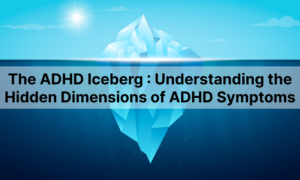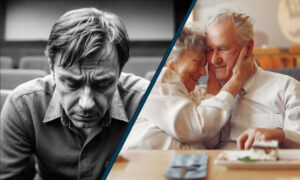Have you ever looked in a mirror, searching deep within your own thoughts, and whispered, “Why I’m so Ugly?” This truly piercing question, often whispered in the quietest moments, says so much about what people really struggle with involving the self-image.
It is not only my thought that comes and goes; it is a reflection of deep-rooted challenges that many of us face in our journey toward self-acceptance. An “I feel ugly” is an echo quiet through our lives; ways that few people would never notice.
In this room, one sees not just a reflection but often an assemblage of doubts and insecurities. It is the most common storyline but every experience is profoundly personal.
Behind every glance in the mirror lies an untold story, an unseen battle. It is not only about what is seen; it is a deeper and more complicated discourse on self-worth and identity.
Here, at the very beginning of this delicate investigation, we will try to untie these narratives, providing not answers but the possibility for understanding and empathy. Welcome to a journey of redefining beauty and rediscovering self-worth.
What the Psychology Opinion about “Why I’m so Ugly”
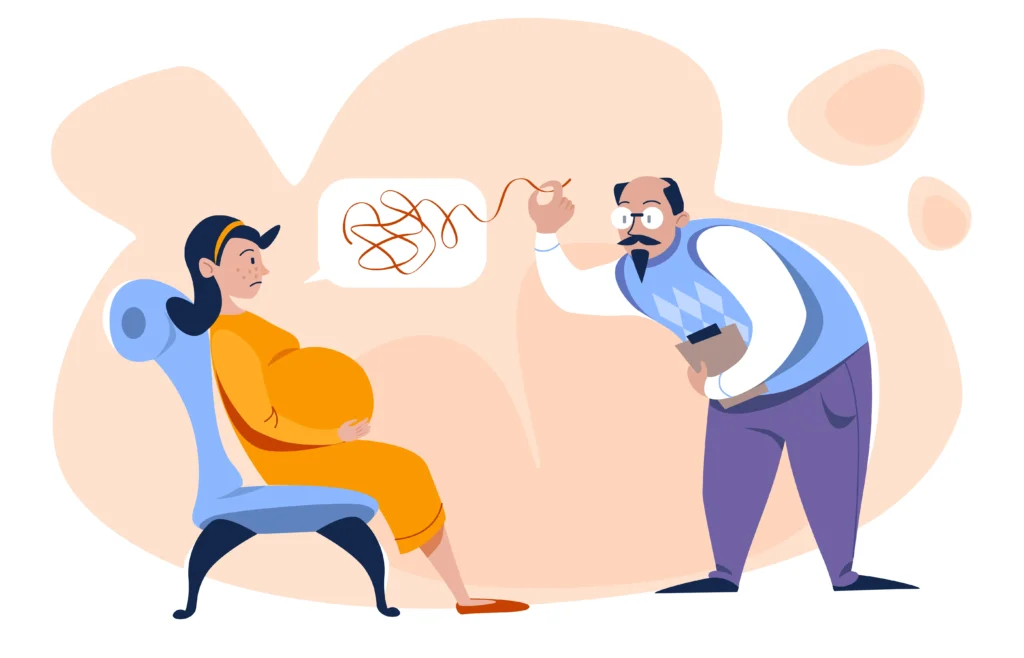
The following part is dedicated to investigating the torturous question: “Why I’m so Ugly?” in such a way as to attempt to unravel the labyrinth of human psyche details. The reflection that returns from the mirror is not a mere combination of body parts; in the real sense, it is a complex tapestry woven by our brain’s interpretation and internal dialogues.
The reason is that some psychological studies from 2023 and 2024, more recently, have shed new light on this phenomenon, showing how profoundly interrelated our self-esteem and body image are with our mental processes.
A groundbreaking study published in the year 2023 really showed that when we ask ourselves, “Why do I feel ugly?” we are often grappling with cognitive biases that are deeply rooted in our psyche. Biases—such as the negativity bias—make us pay much more attention to the flaws in something than to all the positive qualities actually represented. That brings the question “Why I’m so Ugly?” much less one of an objective physical appearance scenario and much more one of a subjective mental process.
Furthermore, research from 2024 highlighted the impact of social comparison in shaping our self-image. We live in the era of social media; it has become much easier for us to lose each other in the comparison of the real selves of everyday life with the flawless illusions created by others, thus increasing feelings of “I feel ugly.” Such comparison, most of the time, gives rise to an unrealistic set of standards against which we judge our appearances.
Interestingly, this literature also points to the role of confirmation bias in self-perception. From the point in time that we have a negative self-image, we are more likely to register and remember information that works to support our being unattractive. This vicious cycle of negative thinking can be hard to break, making the sentiment “I feel so ugly” a recurring theme in our internal narrative.
The key takeaway from this research is the profound impact our thoughts and perceptions have on our self-image. Understanding some of the psychological underpinnings to questions such as “Why I’m so Ugly?” or “Why do I feel ugly?” enables one to begin challenging and changing internal dialogues.
It’s not merely about changing what we see in the mirror, but altering how we perceive and interpret that reflection. Learning how to rewire our cognitive processes is the first step in that journey—to view ourselves through eyes of compassion and realism, rather than ones of criticism and distortion.
Cultural and Social Views on Beauty:
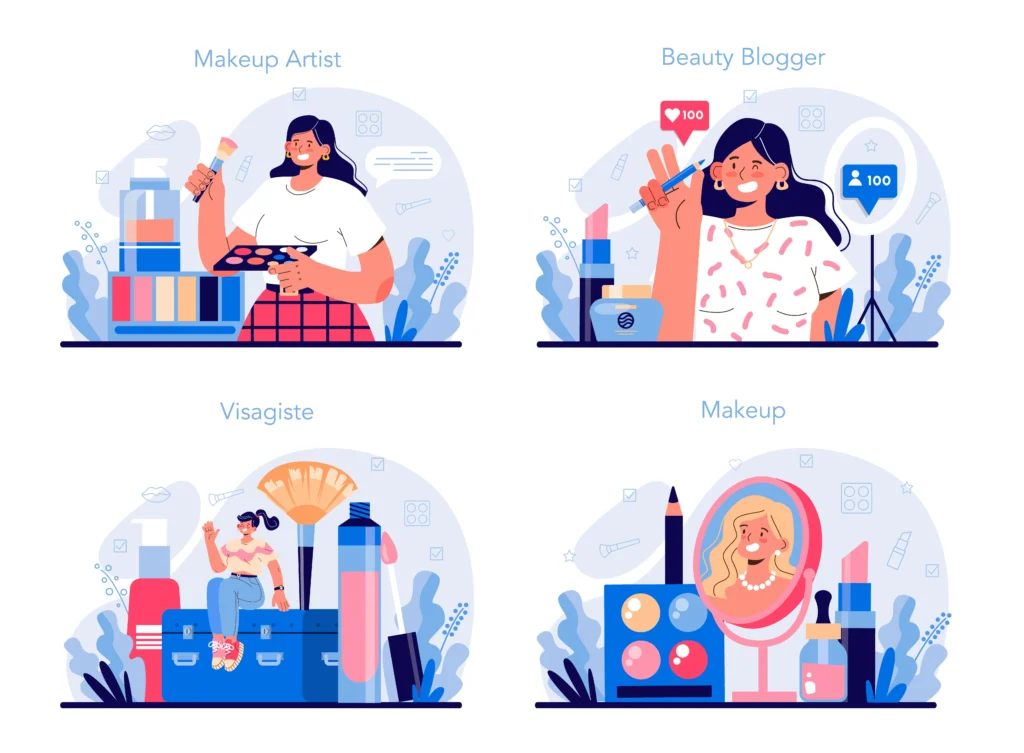
In the search for some of our perceived imperfections—perfections encapsulated by the horrifying question, “Why I’m so Ugly?”—cultural and social views on beauty are very important.
The concept of beauty is absolutely not even close to being universal; rather, it is a mosaic of different ideals and cultures, each shaping our understanding of attractiveness and, consequently, our level of self-esteem.
Cultural Definitions of Beauty:
- The major conversation of “Why I’m so Ugly?” will largely be influenced by the youth, thinness, and symmetry, especially the prevalence of Western societies. Most African and Asian places, though, have beauty linked with having a full figure and some quite unusual facial features.
- In some indigenous communities, focus is likely to be on attributes such as body art or specific hairstyles that become symbols of beauty, offering a wider scope.
Impact of the Media:
- Studies reveal that exposure to Western media dramatically changes non-Western societies’ perceptions of beauty and largely influences the prevalence of such feelings as “I’m ugly”.
- Social media does nothing more than perpetuate unrealistic standards of beauty through an overflow of doctored and modified images, leading to this common internal dialogue: “I feel ugly.” Recent body positivity and diversity campaigns in media representation are attempts to keep at bay a very narrow beauty norm.
Global Beauty Norms
- 2024 shows that the beauty standards of the world have become much more homogeneous very slowly over time, rather than having distinctive ideals by region.
- This can be seen as a meeting point of the two; while this may expand the beauty norms, on the contrary, this may even lead to confusion and a sense of inadequacy in people not fitting into any of these prevailing molds.
These beauty standards keep shifting from one to another and are, at most times, not in coherence; this has a deep psychological impact:
- Self-Esteem: A person with such perception would, therefore, not have the self-esteem that comes with beauty standards that are expected by society.
- Body Image Disorders: It is this urge to fit into these standards that can cause body image disorders; that is what the 2024 global mental health survey concluded.
Understanding that the source of “why do I feel so ugly” often rests in culturally constructed external ideals offers a way of challenging those ideals. We also have to realize the fact that the beauty standards of today are not constant but change and vary immensely.
This realization brings to the self the ability to counter the effect of negative self-perception in order to increase one’s definition of beauty. An overarching definition would help us chip away at the damaging narrative of “I’m ugly” and help build up a much better and accepting self-image.
The Role of Social Media and Comparison

Social media today is a highly influencing force in the defining of beauty in this modern, digitized era. Most people will find it highly distressing thinking, “I feel so ugly in comparison to everyone else.”
It is hard for many people to measure up to the perfect images replete in most of the platforms. This disparity between reality and the digital mirage can significantly distort self-image.
This pervasive influence of social media comes in social comparison. Users often compare themselves ordinarily with glossy personalities in the virtual world, leaving them not feeling good enough. According to a 2023 recent study, a high level of usage of social media sites is associated with increased dissatisfaction with appearance, which further places the influence of these virtual comparisons into perspective.
The high-gloss, perfectly retouched, and curated images seem to flow endlessly, like a never-ending cascade of beauty—the kind only seen in the movies. Scrolling down those idealized mug shots, one can easily say: “Yes, Why I’m so Ugly” This constant exposure to perfection creates room for breeding self-doubt and negative self-talk.
It can serve as an electronic mirror because it often reflects a skewed reality. Still, it is not always rain and thunderstorms. Social media use can be limited to help in setting a more accurate self-perception image. Experts say it is necessary to set limits even for time spent on social media in order to influence the impact on self-esteem.
Engaging mindfully with authentic, body-positive content, on the other hand, could act in the opposite direction. On the other hand, adopting digital detoxes—periods of time during which a person decides to disengage from social media—can definitely be healthy.
It allows them to reconnect with their person and the physical world, compared to the amplified and exaggerated dimensions created online. For instance, a 2024 study showed that participants taking regular digital detoxes had significantly improved self-esteem and body image.
While social media fans the disquieting notion of “Why I’m so Ugly?” intentional consumption and mindful practices make a way toward gaining back self-esteem. It’s about creating a healthy digital diet that nurtures one’s feelings of worth rather than consuming it.
That’s part of this journey of self-acceptance—understanding the role of social media as a critical voice in reshaping our perception of self and, ultimately, silencing the critic within who questions our beauty.
Mental Health and Self-Image
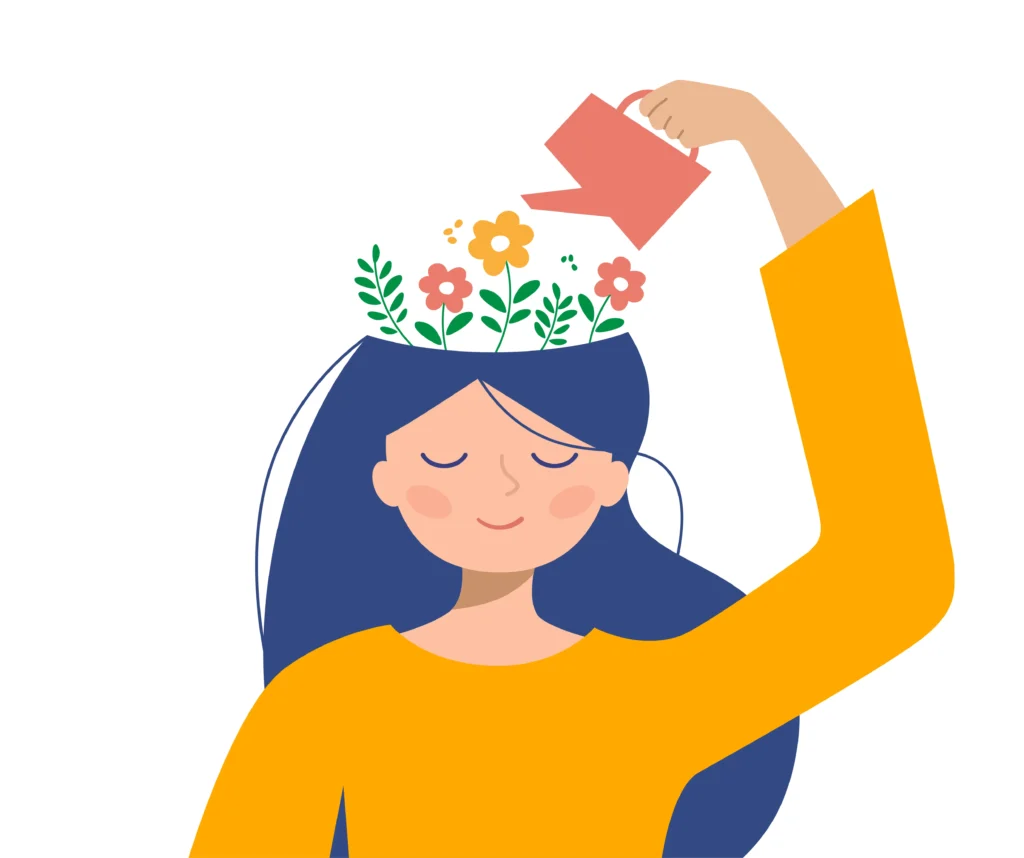
Mental Health and Self-Image: As we start untangling these complex threads of “Why I’m so Ugly?” one thing to always keep at the back of our minds is that there’s a very strong connection between one’s mental health and one’s self-image.
It’s not uncommon that such consistent feelings of unattractiveness are caused by issues such as Body Dysmorphic Disorder (BDD) or anxiety. Understanding these relations might be of great importance because, in a way, it may represent a significant step in dealing with the actual source of the distortions in self-perception.
Body dysmorphic disorder is defined by the obsessive idea concerning a defect in some aspect of one’s appearance, likely to engender disdain, rejection, or ridicule. But it is much more than an occasional worry: it is a constant, nagging thought that can really take over your life.
To a person with BDD, that little question is anything but small or fleeting. This disorder can bring with it tremendous anxiety and depression, further complicating one’s relationship with their self-image.
From time immemorial, experts in mental health have pointed to the thin line that exists between how we view ourselves and our overall psychological well-being. In 2023, the research showed that often, people who had a bad body image risked getting mental problems, such as depression and anxiety.
That does not mean to say feeling so bad about your appearance always translates into a mental health condition, yet it will be high with a view. Further, the prime importance of mental health support cannot be overemphasized in this regard.
Professional assistance, whether it is in the form of counseling or therapy, renders a very crucial space for the individuals to unpack these feelings. It is, if anything at all, the place where the “I feel ugly” feeling can be investigated in an absolutely non-judgmental atmosphere, and most crucially, help is sought to change it.
Therapists commonly apply interventions such as cognitive-behavioral therapy, where the intent is the restructuring of the negative patterns of thought. They would like clients to question the validity of their critical inner voices and learn to take on a kinder and more self-compassionate view of themselves.
This approach has shown promising results, with many reporting an improved self-esteem and overall state of mental health. This approach has shown much promise, with most patients reporting an improved self-esteem and overall state of mental health.
Basically, understanding and dealing with the mental health issues of why one feels ugly is crucial in healing. It is realizing that such feelings run deeper than just skin-deep; they often go right through to the very core of our psychological state. Seeking help and talking openly about these issues is one brave step toward gaining a better self-image and, thus, better mental health.
Redefining Beauty – A Modern Perspective
Redefining beauty in our modern era means stepping away from the narrow lens of traditional beauty norms. It’s about answering the question “How to not be ugly” not by changing ourselves to fit a mold, but by expanding the mold to include all forms of beauty.
Recent trends and movements have begun to pave the way for this more inclusive understanding of beauty:
- Body Positivity Movement: This movement emphasizes loving and accepting your body as it is, encouraging a shift from self-critique to self-celebration.
- Diversity in Fashion and Media: There’s a growing trend of representing various body types, skin colors, and ages in fashion and media, challenging the conventional standards of beauty.
- Mental Health Awareness: Increasing awareness around mental health has brought attention to how traditional beauty standards can impact our psychological well-being.
The key to embracing this new perspective lies in recognizing and celebrating the unique aspects of our appearance. Each feature, whether it’s a freckle, a curve, or a smile, tells a part of our individual stories. Here are some ways to embrace this modern perspective:
- Self-Acceptance: Start by accepting and loving yourself as you are. Remember, beauty is not a one-size-fits-all concept.
- Mindful Media Consumption: Choose to follow social media accounts and consume media that promote diverse and realistic representations of beauty.
- Express Yourself: Use your style and appearance as a way to express your unique personality and story.
By embracing these ideas, we can begin to dismantle the age-old question of “Why I’m so Ugly?” and replace it with a more empowering query: “How can I celebrate my unique beauty?”
It’s a journey that goes beyond skin-deep, touching the very essence of who we are and how we see ourselves in the world. This modern perspective is not just about accepting diversity in beauty—it’s about celebrating it, and in doing so, celebrating ourselves.
Practical Strategies for Improving Self-Image
Improving self-image, especially when bogged down by thoughts like “I feel ugly,” involves a blend of self-care and positive mental practices. It’s about nurturing both the mind and body to foster a healthier self-perception.
Self-care is a fundamental step. It means taking time for yourself, doing activities that bring joy and relaxation. Whether it’s a hobby, exercise, or simply a quiet moment alone, these acts of self-kindness can significantly boost your mood and self-esteem. Remember, self-care isn’t selfish; it’s essential for your well-being.
Positive self-talk is another powerful tool. Replace negative thoughts with affirmations. Instead of thinking “I’m ugly,” try “I am unique and valuable.” This shift in mindset can take time, but its impact on self-image is profound. Mental health experts often recommend starting the day with positive affirmations to set a constructive tone.
Realistic lifestyle choices are also crucial. This includes a balanced diet, regular exercise, and adequate sleep. These practices don’t just improve physical health; they enhance mental well-being too. A healthy body can lead to a healthier self-image.
Mental health professionals suggest setting achievable goals for yourself. This could mean starting a new fitness regime or learning a new skill. Achieving these goals can give a great sense of accomplishment and improve your self-view.
Surrounding yourself with positive influences plays a big part as well. Seek out friends and communities that uplift and support you. Positive social interactions can reinforce a good self-image and combat feelings of isolation.
Lastly, if negative thoughts about appearance persist, consider professional help. Therapists can provide tailored strategies to improve self-image. They can help unravel the deeper reasons behind “why do I feel so ugly” and guide you towards a healthier mindset.
By integrating these strategies into daily life, individuals can gradually shift their self-perception from negative to positive. It’s a journey that takes patience and persistence, but the outcome is a stronger, more confident you.
Personal Stories and Case Studies
There’s power in personal stories, particularly when they echo struggles we’ve all faced. Take Maya’s journey, for instance. Plagued by the relentless thought, “Why I’m so Ugly?”, she struggled daily with her self-image.
Maya’s breakthrough came when she started journaling. Writing down her thoughts helped her see the irrationality in her negative self-perception. Over time, she began to replace “I feel ugly” with “I am more than my appearance.”
Then there’s Alex, who always felt overshadowed by peers, constantly thinking, “I’m ugly.” His turning point was joining a local sports team.
The camaraderie and physical activity boosted his confidence, teaching him to appreciate his body for its strength, not just its looks.
These stories resonate because they are real. They show us that the path to overcoming negative self-perceptions is as varied as we are. They remind us that feeling “Why I’m so Ugly” is not an end but a part of a journey towards self-acceptance.
Through journaling, sports, or other personal endeavors, the transformation in self-perception is possible. Maya and Alex are testaments to the power of taking small steps to change the narrative in our heads. Their stories inspire and motivate us to embark on our paths of self-discovery and acceptance.
Resources and Professional Help
Navigating through the complex emotions tied to thoughts like “I’m ugly” can be challenging, but there’s a wealth of resources and professional help available. Seeking assistance is a brave and positive step towards improving self-image and overall mental health.
- Therapy: Engaging with a therapist can provide personalized strategies to combat negative self-perception. Cognitive Behavioral Therapy (CBT) is particularly effective in addressing issues related to body image.
- Support Groups: Joining groups where members share similar struggles can offer comfort and understanding. It’s reassuring to know you’re not alone in feeling “I feel ugly.”
- Online Resources: Websites and forums dedicated to mental health provide helpful information and a platform to share experiences. They can be a source of daily encouragement and guidance.
- Mobile Apps: Many apps focus on mental wellness and can help track mood patterns, offer relaxation techniques, and connect users with professional advice.
The benefits of reaching out for professional help are immense. Therapists can help unravel the reasons behind thoughts like “Why do I feel so ugly?” and guide you towards a healthier self-image. They offer a safe space to explore these feelings without judgment. Remember, seeking help is not a sign of weakness, but a step towards empowerment and self-love. By utilizing these resources, individuals can find the support they need to navigate their journey towards positive self-perception and mental wellness.
Let’s Recap:
As we wrap up our exploration into the often painful question, “Why am I so ugly?”, it’s clear that the journey towards self-acceptance is multifaceted. We’ve delved into the psychology of self-perception, understanding how our minds shape our body image.
We’ve traversed cultural landscapes, observing how beauty standards vary globally, and we’ve acknowledged the powerful, sometimes detrimental, influence of social media.
Our discussion highlighted the vital link between mental health and self-image, emphasizing the importance of addressing any underlying issues.
We’ve shared practical strategies for improving self-image, from positive self-talk to realistic lifestyle choices. Inspirational personal stories have shown us that change is possible, and we’ve provided resources for those seeking further help.
Remember, beauty is subjective and deeply personal. It’s not defined by societal standards or mirrored in others’ perceptions. Each of us has a unique journey, and self-acceptance is a significant part of that journey.
At Patient Hopes, we understand these challenges and are here to support you every step of the way. We encourage you to continue exploring the resources available, engage with our supportive community, and remember that you are not alone in this. Your journey to self-acceptance and embracing your true beauty, both inside and out, is a journey worth taking.
